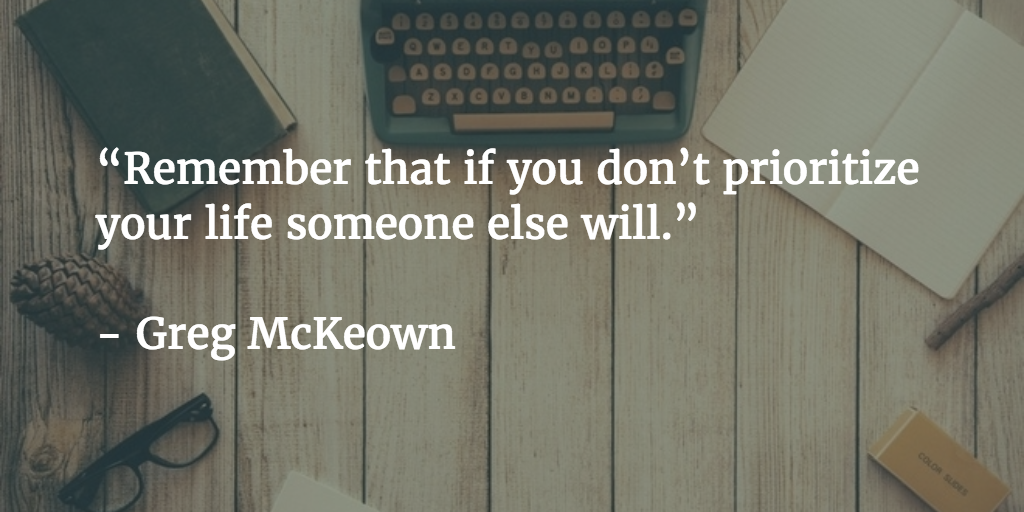

Only in the 1900s did we pluralize the term and start talking about priorities. It stayed singular for the next five hundred years. “ The word priority came into the English language in the 1400s. The idea of “less is more” and eliminating every single thing that is inessential is the crux of the book: Almost no chapter is just an instructional or informational dump that would feel like a textbook read. ”Īlong with this, the book is filled with examples of executives and VPs of famous corporations and Greg’s routine itself. As a result, we neglect activities that are truly essential, like spending time with our loved ones, or nurturing our spirit, or taking care of our health. “ We overvalue nonessentials like a nicer car or house or even intangibles like the number of our followers on Twitter or the way we look in our Facebook photos. It is about making the wisest possible investment of your time and energy in order to operate at our highest point of contribution by doing only what is essential.”Īnd McKeown does it well in the context of the go-go-go mindset that has been enforced by the hustle culture in the Internet Age: It doesn’t mean just doing less for the sake of less either. “ Essentialism is not about how to get more things done it’s about how to get the right things done. McKeown talks about essentialism being the skill of distinguishing the “vital few from the trivial many.” In his own words, essentialism is: That should be your one takeaway if nothing else. The primary idea of the book is that only a few things truly matter.


 0 kommentar(er)
0 kommentar(er)
